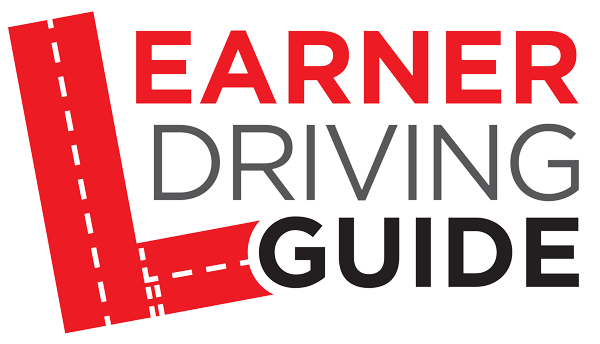Tips for How To Pass
Your Driving
Test on the First Try
Calm your nerves about learning to drive with our helpful tips to pass your driving test the first time. Each year, millions take driving tests in the UK, but more than half fail. You can avoid being part of this statistic by preparing well. That’s why we’ve gathered 15 expert tips to help you pass your driving test.
How to pass your driving test fast
Arrive on time
Getting to your test early sets a positive tone. Being late increases the risk of missing it or feeling rushed and flustered. Aim to arrive 10-20 minutes before your test to give yourself ample time to prepare without waiting too long. Getting a good night’s sleep beforehand is also crucial to manage stress and anxiety.
Take a lesson beforehand
Consider scheduling a driving lesson on the day of your test if possible. This allows you to review manoeuvres and address any last-minute questions. Pre-test lessons help ease nerves and mentally prepare you for driving, especially if you’ve been having two-hour lessons leading up to the test, which we also recommend.
Double-check your essentials
Every year, numerous driving tests are derailed because candidates forget crucial items. It’s essential to ensure you have all the necessary documents and that your vehicle is equipped to meet the test standards. Take the time to verify that you have everything you need before heading to the test centre to avoid any last-minute complications.
Choose your instructor’s car
Driving a car you’re familiar with can significantly improve your chances of passing the driving test on your first attempt. By using your instructor’s car, you can be confident that it meets the examiner’s standards, including specific requirements such as additional mirrors.
On top of that, being well-versed in your instructor’s vehicle gives you an edge in the ‘Show Me, Tell Me’ Section of the test, where you’ll need to demonstrate knowledge of various safety tasks. Request your instructor to thoroughly explain the mechanics of the car, ensuring you’re comfortable and confident even before hitting the road for your test.
Consider having your instructor accompany you
While it’s not mandatory to bring anyone along, you have the option to bring your instructor in the car during the test. This can offer reassurance and help you feel more at ease throughout the examination.
Your instructor can also provide additional observations and constructive feedback, which can be valuable regardless of the test outcome. Additionally, you’re permitted to bring along anyone over the age of 16 for additional support during the test.
Don’t hesitate to ask for clarification
If you find yourself unsure about an instruction during your test, stay composed and politely request the examiner to repeat it. Panicking will only distract you and increase the likelihood of making mistakes.
Stay positive and avoid assuming failure
One crucial tip for passing your driving test is to maintain a positive mindset throughout. Even if you make a mistake, remember that you’re allowed up to 15 minor faults. Avoid dwelling on errors and always assume that you’re still on track to pass.
Minor mistakes, such as stalling, are common and usually considered minor faults unless they occur in potentially dangerous situations. Stay focused, remain in control, and continue with the test confidently. Overthinking minor errors can lead to more mistakes, so keep a positive outlook and stay focused on the task at hand.
Choose the right test location
When deciding where to take your driving test, consider the location carefully. Test centres situated in busy urban areas with complex roundabouts typically have lower pass rates compared to those in rural regions where traffic is lighter.
While achieving a 90% pass rate, like on the Isle of Mull, may be impractical for most, it’s worth comparing pass rates at your local test centres. Opting for a centre with a higher pass rate isn’t cheating; however, consider whether it will adequately prepare you for real-world driving after the test.
Getting familiar with test routes
Although you can’t predict the exact route on test day or anticipate every hazard, familiarising yourself with the area around your chosen test centre is beneficial. Practice driving on various road types, including major and minor roads, country lanes, and dual carriageways, to avoid unexpected surprises during the test.
Emphasise mirror checks
Many learner drivers receive minor faults during tests due to insufficient observation. Regularly checking your mirrors, especially when starting, approaching hazards, changing position, or shifting gears, is crucial. While examiners are trained to monitor your mirror usage, being thorough in your checks won’t hurt. Consider exaggerating your head movements when checking mirrors, as this can reduce the likelihood of receiving a minor fault.
Carefully choose the time of your test
Ensure you schedule your driving test at a time when you can fully concentrate. Avoid booking it during periods when you might be preoccupied with other commitments, such as schoolwork, exams, or family obligations. Choosing a time when you can dedicate your complete attention increases your chances of success on test day.
Learning to Drive in Various Conditions
Prepare for unpredictable weather conditions by practising driving in different scenarios with your instructor. While you may hope for dry and sunny weather on test day, it’s essential to be ready for anything. Practice driving in rain, shine, fog, and darkness to build confidence and adaptability.
Listening to Your Instructor
Your driving instructor has spent hours with you and has a good understanding of your readiness for the test. Trust their judgment; they won’t encourage you to take the test prematurely. Have faith in yourself if they believe you’re ready. Additionally, your instructor can pinpoint your weaknesses, so focus on improving them during lessons. Consider scheduling a last-minute lesson to calm your nerves before the test.
Reviewing Theory Knowledge
Refresh your memory of the Highway Code and road sign meanings before the practical test, especially if there has been a gap since passing your theory test. Even if you’re confident, reviewing the material can help ease nerves and ensure you’re up to date with any changes in driving standards. Consider subscribing to The Learner Driving Guide online for comprehensive training materials, including 42 interactive lessons and 75 multi-camera teaching videos, to reinforce your knowledge and boost your confidence ahead of the test.
Avoid Rushing to Get Your License
Don’t rush to take the test until you’re fully prepared. Rushing can result in lacking the necessary experience for independent driving and may dent your confidence if you fail. Wait until your instructor confirms you’re ready to take the test, avoiding wasted time and potential disappointment.
Bonus Tip – Listen to Feedback
Whether you pass or fail, listen carefully to the feedback provided by the examiner at the end of the test. They offer valuable insights for improvement. Even if you’ve passed, there’s always room to enhance your driving skills. Pay attention to their advice to become a better driver.
Written by: Learner Driving Guide
Subscribe Today
Only £19.99/Month
How to pass your driving test! All you need with this rolling monthly subscription - ideal for manual and automatic learners of all abilities.
Use The Learner Driving Guide for as long as you need to. No long tie-ins; no cancellation charges. Just full access to all our 42 lessons, for as long as you need.

